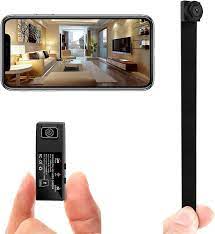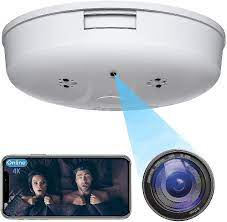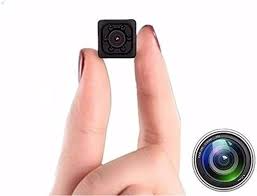Introduction
In recent years, the massage therapy industry has faced a significant challenge that goes beyond issues of service quality and customer satisfaction. Reports have surfaced about hidden cameras being installed in several Asian massage parlors across various regions, raising grave concerns over client confidentiality and personal privacy. This invasive practice not only violates ethical codes but also breaches numerous laws governing privacy rights. As a result, it threatens the reputation of legitimate massage establishments and undermines the trust between clients and practitioners.
Understanding the Privacy Rights Violation
The installation of hidden cameras in Asian massage parlors constitutes a severe infringement on the privacy rights of clients. Privacy is a fundamental human right, enshrined in various legal frameworks and moral codes around the world. In the context of massage therapy, this right is particularly critical because the service involves personal space, physical touch, and often a level of vulnerability.
Legal Framework:
Under both criminal and civil law, individuals have a reasonable expectation of privacy within certain settings, especially during intimate services such as massages. Unauthorized audio or video recording without explicit consent is generally illegal under voyeurism laws or invasion of privacy statutes. For instance, many states in the United States have specific laws that prohibit secret surveillance in places where one would reasonably expect privacy, like locker rooms, restrooms, and healthcare facilities – including massage parlors.
Invasion of Personal Space:
Massage sessions are inherently private, with clients disrobing or wearing minimal clothing to receive treatment. The presence of hidden cameras turns what should be a safe, therapeutic environment into an area of potential exploitation. It not only captures images but also records sensitive health information, which may be protected by medical confidentiality laws.
Impact on Trust and Consent:
Client-therapist relationships are built on trust, and informed consent is a cornerstone of ethical practice. Without knowledge or permission, recording a client’s session undermines their autonomy and control over their own image and personal data. This breach of trust can lead to psychological distress and deter people from seeking necessary care.
Consequences for Victims:
Victims of such privacy violations may suffer long-term emotional harm, loss of reputation, and in some cases, face blackmail or public exposure. They are entitled to seek legal remedies, including damages, injunctive relief to prevent further dissemination of the recordings, and potentially criminal prosecution against those responsible.
In conclusion, the use of hidden cameras in Asian massage parlors profoundly violates the sanctity of client privacy, defies professional ethics, and contravenes multiple layers of the legal framework designed to protect citizens’ rights. Addressing this crisis necessitates a multifaceted approach involving stricter regulations, heightened industry standards, and increased public awareness about privacy rights and expectations in massage therapy settings.
Impact on the Asian Massage Industry
The hidden camera crisis has significantly impacted the Asian massage industry, tarnishing the image of many reputable businesses. It fuels negative stereotypes and mistrust, which can deter potential customers who seek relaxation and healing. Legitimate massage therapists and business owners struggle with the fallout, having to work harder to reassure clients of their commitment to safety and privacy. Moreover, this issue can deter qualified professionals from entering the industry due to fear of association with unethical practices.
Legal Consequences and Enforcement
Law enforcement agencies have taken a firm stance against the use of hidden cameras in massage parlors. Stringent penalties are imposed on violators, including fines, imprisonment, and the revocation of business licenses. In addition to criminal proceedings, affected clients often pursue civil lawsuits for damages. The legal system is tasked with ensuring that victims receive justice and perpetrators are held accountable. However, the complex nature of these cases highlights the need for increased vigilance and proactive measures within the industry.
Professional Ethics and Best Practices
Professional massage associations emphasize the importance of upholding ethical standards that include client confidentiality and informed consent. Establishments must implement strict policies prohibiting any form of covert surveillance. Best practices involve regular inspections, clear signage indicating no recording zones, and employee training programs focused on maintaining professional boundaries and reporting suspicious activities. Businesses can also leverage technology to detect hidden cameras and ensure a secure environment for clients and staff alike.
Community Response and Advocacy
The discovery of hidden cameras in Asian massage parlors has sparked widespread outrage and calls for action from the community, advocacy groups, and legal authorities. Here’s how various stakeholders are responding and advocating for change:
Community Outcry:
Local communities have been vocal about their concerns regarding privacy violations at these establishments. This issue not only affects the immediate victims but also raises broader questions about safety and trust within the community. Community members often organize protests, petition drives, or hold public forums to discuss the implications and demand accountability.
Advocacy Groups:
Privacy rights organizations and victim support groups play a crucial role in raising awareness, providing assistance to victims, and pushing for legislative reforms. They lobby for stricter penalties for violators, better enforcement of existing laws, and the creation of new regulations that specifically address covert surveillance in intimate service settings.
Legal and Law Enforcement Response:
Law enforcement agencies respond by investigating such incidents, making arrests when appropriate, and ensuring the evidence is handled with sensitivity to protect victims’ identities. The legal system works to prosecute offenders and seek justice for those whose privacy has been egregiously invaded. Additionally, they may collaborate with advocacy groups to educate the public on identifying potential risks and reporting any suspicious activities.
Regulatory Bodies and Industry Standards:
Regulatory bodies overseeing massage therapy and related industries are under pressure to tighten regulations around facility inspections, licensing requirements, and ethical conduct standards. This includes clear guidelines against unauthorized recordings and increased scrutiny of business practices within massage parlors.
Media and Public Awareness Campaigns:
The media plays an essential role in highlighting cases of privacy violations and fostering public discussion. Through investigative journalism, documentaries, and news reports, they raise awareness about the prevalence of this issue and encourage readers, viewers, and listeners to be vigilant and proactive in protecting their privacy.
Victim Support Services:
Counseling services and victim advocacy centers provide emotional support, legal guidance, and resources to help those affected by privacy breaches. They also work to destigmatize seeking help and empower victims to come forward and assert their rights.
In summary, the community response to privacy rights violations in hidden cameras in Asian massage involves a collective effort across multiple sectors, aiming to ensure that such transgressions are met with swift and decisive action, while working proactively to prevent future occurrences through education, regulation, and robust legal frameworks.

Moving Forward
Restoring Trust and Ensuring Safety
Restoring public trust and confidence in Asian massage parlors requires a concerted effort from all stakeholders. Business owners must take proactive steps to demonstrate their commitment to privacy and security. Regulatory bodies should enforce stringent guidelines and conduct regular inspections. Consumers, too, can contribute by seeking out licensed establishments, reading reviews, and asking questions about privacy policies before availing services. Ultimately, rebuilding trust will hinge on an unwavering commitment to the highest ethical standards and a relentless pursuit of safe, confidential therapeutic environments for all clients.
By shining a light on the hidden cameras in the Asian massage crisis, we aim to foster a dialogue that promotes change and protects the rights of massage clients while supporting the growth of a responsible, ethical, and thriving massage therapy sector.